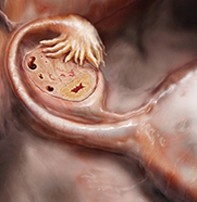Peer Reviewed
Feature Article Women’s health
Noncontraceptive uses of hormonal contraception
Abstract
Hormonal contraception has important therapeutic uses beyond contraception in managing conditions such as irregular bleeding, menorrhagia, endometriosis, acne and hirsutism. Most significantly, it also provides protection from ovarian and endometrial cancers.
Key Points
- Hormonal contraception has important therapeutic uses beyond contraception.
- Hormonal contraceptives are beneficial in managing dysmenorrhoea. The levonorgestrel-containing intrauterine device, in particular, is also effective in managing menorrhagia.
- Use of combined hormonal oral contraceptives provides protection against ovarian and endometrial cancers.
- Women with androgenic conditions, such as acne and hirsutism, benefit from the use of combined hormonal oral contraceptives.
- Combined hormonal contraceptives are effective in inducing regular menstrual cycles and amenorrhoea.
- Women who have menstrual cycle-related worsening of conditions, such as epilepsy, headaches and premenstrual syndrome, may benefit from the use of hormonal contraceptives.
- Combined hormonal contraceptives may also be useful as hormone replacement therapy in women who are experiencing perimenopausal symptoms or with conditions such as premature ovarian failure.

